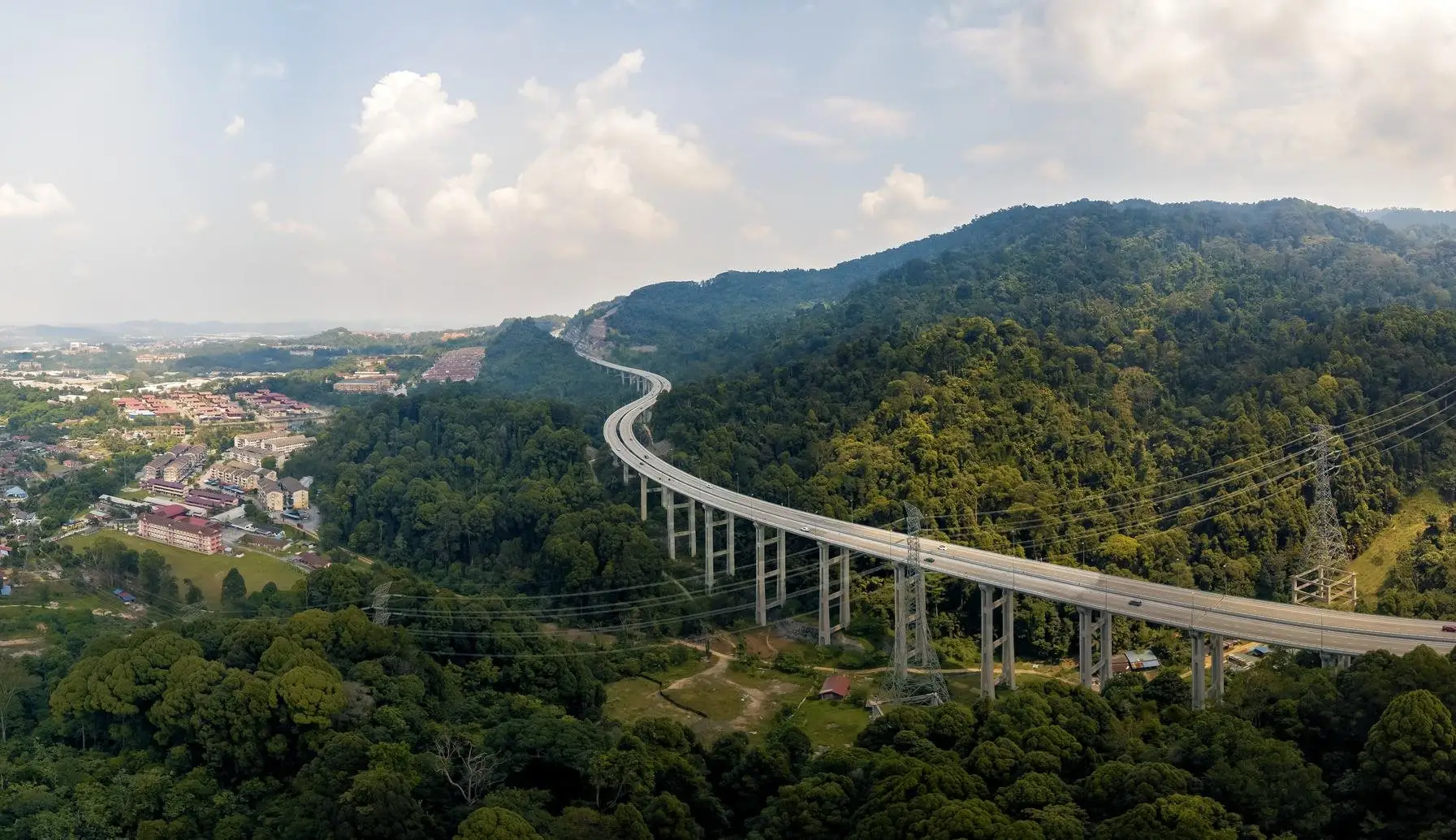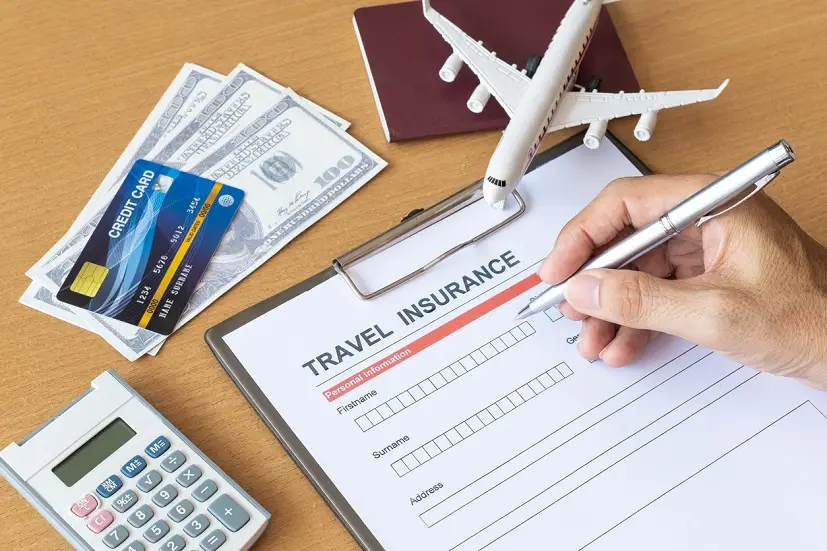What to Do After a Traffic Accident
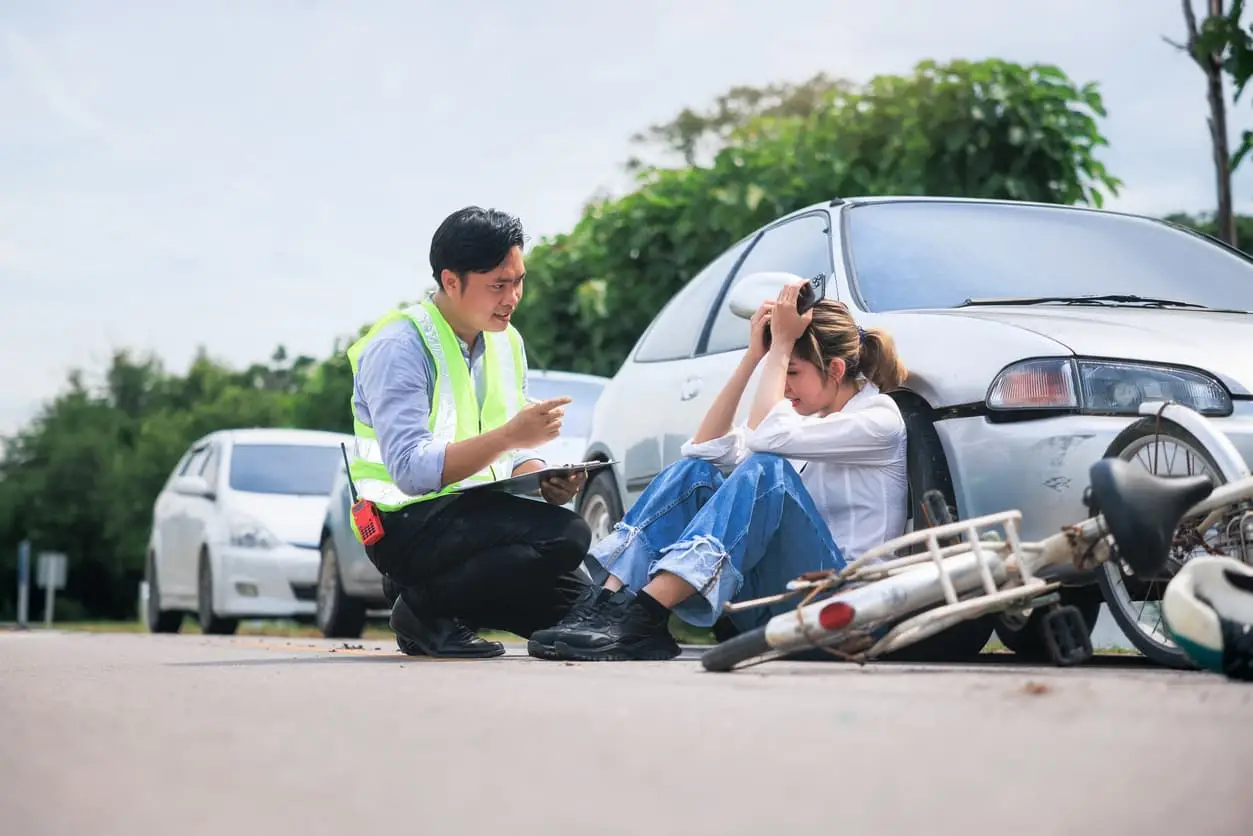
Singapore's roads are a network of busy thoroughfares, and unfortunately, traffic accidents are not uncommon. In 2024 alone, there were a staggering 7,049 accidents resulting in injuries, with a total of 9,302 people hurt (Source: CNA). Being familiar with road safety protocols and the crucial steps to take after a collision can significantly reduce stress and confusion in the aftermath of a stressful event.
This article will guide you through the essential actions to take immediately following a road accident. By following these steps, you can ensure your safety, gather vital information, and pave the way for a smoother claims process.
Immediate Steps Post-Accident
Ensuring Personal Safety
The moments following a road accident can be filled with adrenaline and confusion. However, the first and most important step is to ensure your own safety and well-being.
Check yourself for any injuries, even minor ones. If you're travelling with passengers, calmly assess their condition as well. It may seem counterintuitive, but prioritise your own safety before attending to others. If you're injured, you may not be able to help them effectively, and could potentially worsen the situation.
If you suspect injuries, do not move anyone, including yourself, unless they are in immediate danger (e.g., their car is on fire). This is especially important for those who appear unconscious or are experiencing shock. Moving an injured person can exacerbate existing injuries or create new ones. Instead, call for emergency assistance immediately. Dial 995 for an ambulance (or 1777 for a non-emergency ambulance) and 999 for the police. Remain calm and wait for the professionals to arrive.
Even if you don't feel any immediate injuries, it's crucial to see a doctor after an accident. Adrenaline can mask underlying injuries, and a proper check-up can ensure any potential issues are identified and treated promptly.
Securing the Scene
Once you've ensured everyone's safety, take steps to secure the accident scene and prevent further incidents. Turn on your hazard lights to warn approaching vehicles on the road. If you have a warning triangle or traffic cones, place them a safe distance away from your car to alert other drivers. It's important to leave your vehicle in its current position (even if it's obstructing traffic) to preserve the scene for investigation and insurance claims.
Documenting the scene with photos is crucial. Use your phone's camera to capture multiple images from various angles. Having a comprehensive visual record of the accident will be beneficial when filing motor insurance claims and reconstructing the events that transpired.
Angles you should be shooting include:
- A wide-angle shot capturing the entire accident scene, including the surrounding area.
- Images of the surrounding area, including any skid marks or debris related to the accident.
- Close-up photos of the damage to your vehicle, ensuring your license plate is visible (if possible).
- Close-up photos of the damage to other vehicles involved, ensuring their license plates are visible (if possible).
- Photos of the license plates of all vehicles involved in the accident.
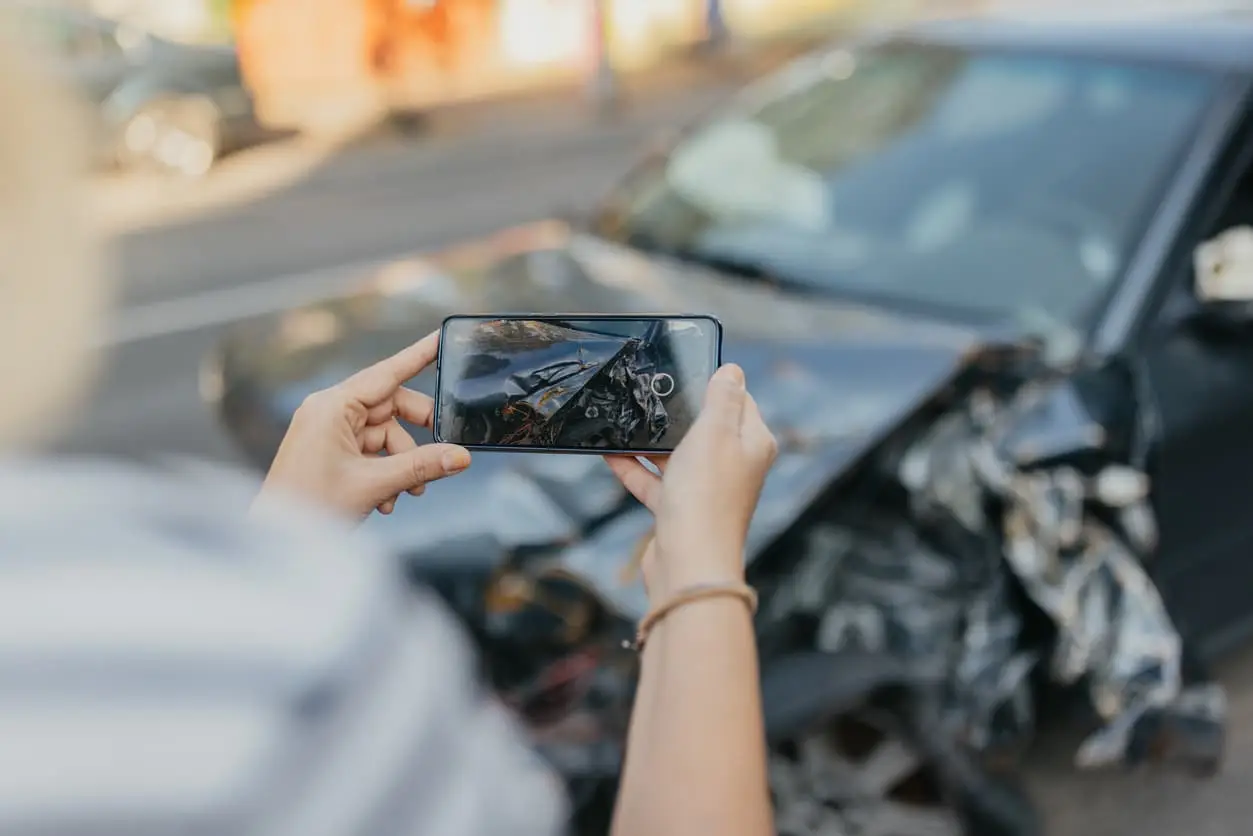
Documentation and Reporting
Gathering Essential Information
Under the Singapore Motor Claims Framework (MCF), exchanging contact details with all parties involved in the accident is essential. This includes drivers, passengers, and any witnesses who may have observed the accident unfold. Having this information readily available will speed up the claims process for everyone involved.
- Full Name
- NRIC Number
- Mobile Phone Number
- Residential Address
- Insurance Company Details (Name and Policy Number)
The Role of Witnesses
Witness accounts can be invaluable when filing an insurance claim. If you are involved in an accident and there were bystanders or pedestrians present, ask a friend, family member, or someone you trust to gather their contact information. Their observations can help make sense of what happened, establish a sequence of events, and determine what you will need to do next.
If you're able to, consider doing the following when approaching witnesses:
- Be Polite and Courteous: Introduce yourself and explain that you would appreciate their assistance.
- Explain the Situation Briefly: Provide a concise overview of the accident without placing blame.
- Ask for Their Contact Information: If they're willing to provide a statement, obtain their full name, contact details, and a brief description of what they witnessed.
- Ask About Their Perspective of the Accident: Ask them to describe what they saw in a clear and objective manner.
- Details About the Vehicles: If possible, request descriptions of the cars or motorbikes involved, including any noticeable damage.
- Contact Details of Any Other Witnesses: If they had noticed other bystanders who may have a different vantage point, ask for their contact information as well.
If you're unable to gather information yourself, don't worry:
- Ask friends or family: If you have someone with you, or if help arrives soon after the accident, ask them to try and get witness information while you focus on your well-being.
- Reach out later: If you didn't get witness details at the scene, you can always try to return to the location later to see if anyone who was present is still around.
Remember, your safety and well-being are the top priorities after an accident. Don't put yourself in any further danger trying to gather witness information.
Reporting the Accident
It's important to understand the distinction between a Traffic Police Report and an accident report filed with your insurance company. Both reports are necessary, but they serve different purposes. Failing to report the accident to your insurer within a reasonable timeframe (typically 24 hours) could have significant consequences, such as:
- Liability Repudiation: Your insurer may refuse to cover any damages if you fail to report the accident within the stipulated timeframe.
- No-Claims Discount Impact: A late report may affect your No-Claims Discount (NCD), potentially leading to a higher premium upon policy renewal.
- Policy Cancellation: In extreme cases, your insurer may cancel or refuse to renew your policy altogether.
Traffic Accident Reports are legal documents that detail the accident and are used by the authorities to investigate and determine fault. You are required to file a Traffic Police Report within 24 hours of the accident if any of the following apply:
- Fatality
- Vandalism
- Vehicle fire
- Damage to government property
- Foreign vehicle involved
- Government vehicle or property involved
- Pedestrian or cyclist involved
- Hit-and-run case
- Injury cases where:
- At least one person was taken to the hospital by ambulance or self-reported
- Any party involved sustained injuries requiring outpatient medical leave for 3 days or more
When submitting your Traffic Accident Report, be sure to include important information, namely:
- Exact location of the accident
- Date and time of the accident
- Weather and road conditions at the time of the accident
- Brief statements from all parties involved in the accident (if possible)
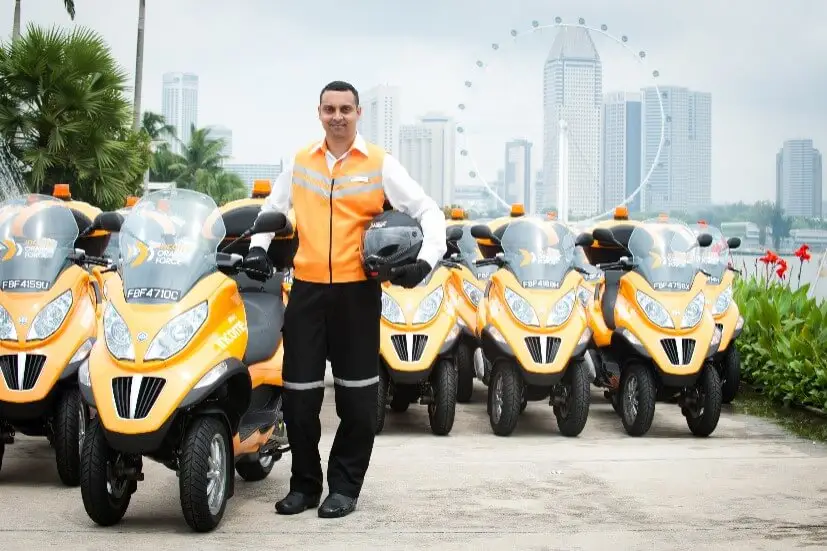
Engaging with Orange Force
Following a road accident, the immediate aftermath can be overwhelming. Between ensuring everyone's safety, exchanging information, and navigating the reporting process, it's easy to feel stressed and uncertain. That's where Orange Force, the on-demand roadside assistance service provided by Income Insurance, comes in as your crucial ally. Income’s Orange Force covers three core services:
- Assistance During an Accident: In the event of an accident, you can reach Orange Force by calling 6789 5000. Our call line is active from 8am to 8pm, Monday to Saturday (excluding public holidays). Rest assured, our ambassadors will arrive at the scene within 20 minutes1.
- Guidance on the Next Steps: Our priority is your well-being. Orange Force will not only ensure your safety by providing roadside assistance but will also guide you through the next steps, helping you understand the necessary procedures and reports.
- Administrative Assistance: Dealing with accident reports and paperwork can be time-consuming and confusing. Orange Force can assist you in filing the Singapore Accident Statement at your preferred location and time, taking the stress out of the administrative process and safeguarding your interests.
Navigating Accident Claims with Confidence
By following these steps, you can approach the aftermath of a road accident with greater knowledge and confidence. Remember, knowing what to do in these situations can significantly reduce stress and ensure a smoother, safer resolution.
When faced with a road accident, don't hesitate to leverage Orange Force for assistance if you’re an Income motor policyholder. From providing assistance at the scene to guiding you through the reporting process, our ambassadors are here to help. For more pre-emptive coverage, you can browse Income’s Motorcycle insurance and Drivo Car Insurance, which covers third-party property damages damages arising from an accident and reimburses expenses incurred for vehicle repairs in the event of an accident. By being prepared and having the right insurance in place, you can drive with greater peace of mind, knowing you're protected in the event of an accident.
1 Since 2011, Orange Force has responded to more than 80% of accident assistance calls within 20 minutes.
Protected up to specified limits by SDIC.
This article is meant purely for informational purposes and does not constitute an offer, recommendation, solicitation or advise to buy or sell any product(s). It should not be relied upon as financial advice. The precise terms, conditions and exclusions of any Income Insurance products mentioned are specified in their respective policy contracts. Please seek independent financial advice before making any decision.
These policies are protected under the Policy Owners’ Protection Scheme which is administered by the Singapore Deposit Insurance Corporation (SDIC). Coverage for your policy is automatic and no further action is required from you. For more information on the types of benefits that are covered under the scheme as well as the limits of coverage, where applicable, please contact Income Insurance or visit the GIA/LIA or SDIC websites (www.gia.org.sg or www.lia.org.sg or www.sdic.org.sg).
This advertisement has not been reviewed by the Monetary Authority of Singapore.
Related Articles

